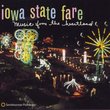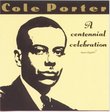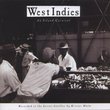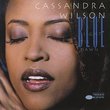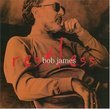| All Artists: Bascom Lamar Lunsford Title: Ballads, Banjo Tunes, And Sacred Songs Of Western North Carolina Members Wishing: 5 Total Copies: 0 Label: Smithsonian Folkways Original Release Date: 4/23/1996 Release Date: 4/23/1996 Genres: Country, Folk, International Music, Pop Styles: Classic Country, Traditional Folk, North America, Appalachian Number of Discs: 1 SwapaCD Credits: 1 UPC: 093074008225 |
Search - Bascom Lamar Lunsford :: Ballads, Banjo Tunes, And Sacred Songs Of Western North Carolina
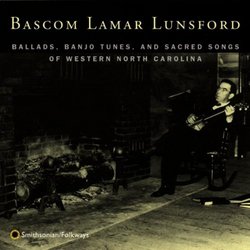 | Bascom Lamar Lunsford Ballads, Banjo Tunes, And Sacred Songs Of Western North Carolina Genres: Country, Folk, International Music, Pop
This "Minstrel of the Appalachians" performed hundreds of traditional songs and tunes that he learned from family members, neighbors, and other residents of western North Carolina. The breadth of Lunsford?s huge repertoire... more » |
Larger Image |
CD DetailsSynopsis
Album Description This "Minstrel of the Appalachians" performed hundreds of traditional songs and tunes that he learned from family members, neighbors, and other residents of western North Carolina. The breadth of Lunsford?s huge repertoire is represented, including ballads, folk songs, spirituals, 19th-century popular songs, and banjo and fiddle tunes. All tracks were recorded by Brunswick Records in the 1920s or the Library of Congress in 1949. Includes Old Mountain Dew, an original composition which found its way into both oral tradition and popular culture, Swing Low, and To the Pines, To the Pines. 55 minutes. "[Hits] faster and sweeter than a jug of corn liquor." ?New York Post Similar CDs
Similarly Requested CDs
|
CD ReviewsA Fascinating Figure D. B Pepper | Plainview, NY United States | 12/03/2003 (5 out of 5 stars) "Bascom Lamar Lunsford was a fascinating figure, who in his 91 years on this earth managed to record more American folk songs, British ballads, Negro spirituals, breakdowns, reels, topical songs etc. than probably anyone else who ever lived. He was a jack-of-all-trades and a very educated man of a middle class background. On this particular album, "Old Stepstone" is the masterpiece, in my opinion. Its lyrics are simply breathtaking! Lunsford's greatest strength is not in singing or his banjo playing, but rather in his huge repertory of songs and the laid-back way in which he plays them. His vocals are also easier on the ears than those of a Dock Boggs or a Roscoe Holcomb. Unfortunately, the vast majority of the thousands of songs that the man recorded are not available on compact disc, and that's a tragedy. In conclusion, this is an excellent album of Old-Timey and American folk music which is very easy to listen to and is extremely rewarding and heartfelt." Living history preserved by the Minstrel of the Appalachians Daniel Jolley | Shelby, North Carolina USA | 03/24/2005 (5 out of 5 stars) "This is much, much more than a music CD; this is history, and tradition, and an echo of life as it once was. Having been born and raised in the North Carolina foothills, this music is especially significant to me. In the late 19th and early 20th centuries, music was a way of life in the North Carolina mountains; thanks to Bascom Lamar Lunsford, that old way of life and culture is not completely lost to us in this modern age. Lunsford had many professions during his long life, but the music he grew up with was his passion. He recorded many songs that would almost certainly have been completely lost to us; not only that, he described each song, talked about where he heard it, who played it, etc. He was called "the Minstrel of the Appalachians" because he collected songs from all over western North Carolina and preserved them. He played the fiddle, banjo (in two distinctive styles), and mandoline (sort of like a mandolin), and he sang, recording hundreds of the living tunes of his friends, neighbors, and neighborly strangers over the years - all sorts of songs, including ballads, folk songs, gospel songs, fiddle tunes, and banjo tunes. He also wrote a few songs of his own, including the classic Old Mountain Dew. No American contributed more material to the Archive of Folk Song than Lunsford, and all but five of the recordings on this album come from his "memory collection" recordings made at the Library of Congress in 1949 (the "memory collection" actually consists of no less than 318 songs); the other five were recorded for Brunswick Records in 1928. I can't really describe all of these tunes and do them justice; they are all so much more than just songs. How do you describe the lone voice of a culture that no longer exists? You have to hear it for yourself. Lunsford does describe many of the songs on his recordings, and the accompanying CD booklet features a lot of valuable information about each tune. The only one of these recordings I was at all familiar with was Old Mountain Dew, but Grandpa Jones' recording didn't include all of the verses of Lunsford's original version. After listening to this album, one has to ask where all of the other 300 or so Lunsford recordings are. This music is so pure and historically important, it seems a shame that Lunsford's entire "memory collection" of tunes is not available in a box set. Lunsford recorded these songs so that they would never be forgotten, and I for one would love the chance to listen to every single recording Lunsford ever made." Don't even hesitate - hit the "one click" button Ryan McNabb | Ooltewah, TN USA | 10/06/2004 (5 out of 5 stars) "What a gift he gave the world. Bascom Lunsford did the near-impossible: he saw and heard this music as both an insider and an outsider. As an insider he knew exactly how it should be played, because he never learned it any other way. He knew the music, the people, the nuances and turns of phrase, as completely as he knew his own name. His voice was as ragged and unschooled as any miner or hill country farmer who never cracked a book. As an outsider, he understood this music for what it was - the last exhalation of a great American culture, the tangible sound of a people and a place that were, if not vanishing, then certainly in the process of changing permanently into something very different. He understood how important it was to save as much as he could, as fast as he could. And we are all deeply in his debt."
|

 Track Listings (19) - Disc #1
Track Listings (19) - Disc #1